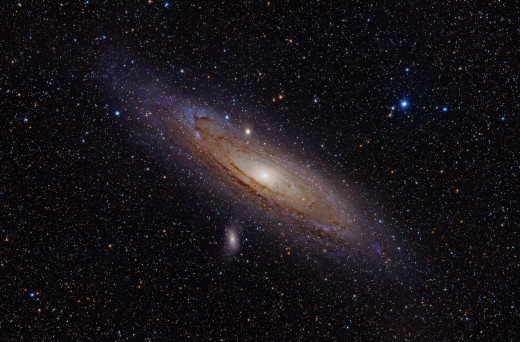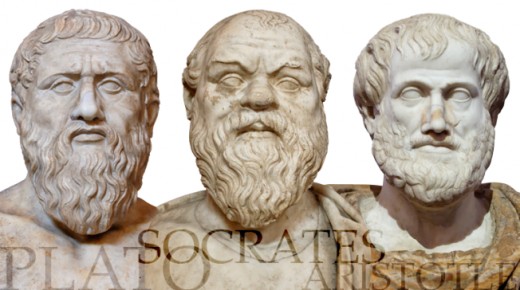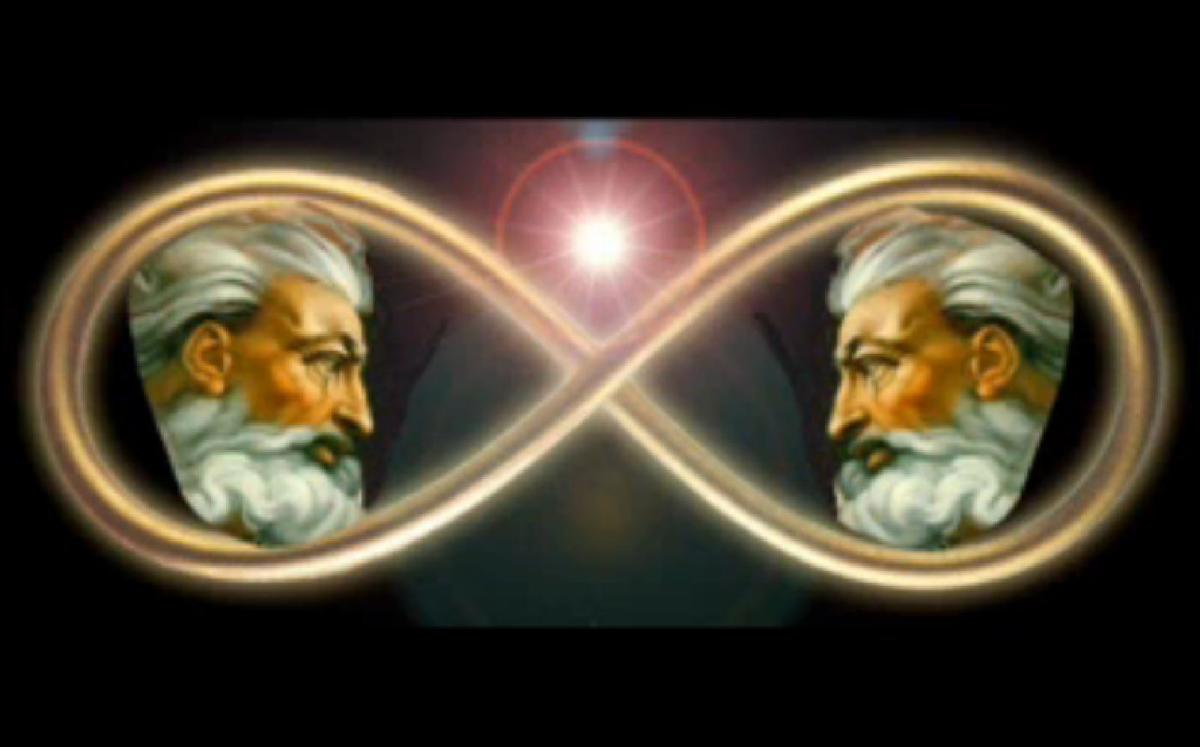Arguments for God's existence. (Cosmological argument)
Who made these?

Can we really know if he's there?
With some of the the debates that have been raging on hubpages recently I thought it might be a good time to take a look at some of the historical 'arguments' used both for and against the existence of God.
Before we launch into something like this it's important to point out that while I personally believe he does exist I'm not trying to 'prove' anything with this hub! More like giving some time for us to look at the arguments used over the mmillenia. I can't answer for you whether God exists because we each look at the evidence through different 'filters' and as a consequence we may see the same evidence but have totally different interpretations!
We find God in the Holy Books

Who can help us?
Can science answer the question?
Truth is it depends on whom you talk to! Ask a scientist who is a believer and the answers will range from "probably" to "absolutely" but ask a skeptic or non believer and it'll be anything from "maybe not" to "don't be ridiculous!"
The facts
Science can only report data from either observation or experiments, it can't interpret that data and should never be used to try to interpret it. The job of interpreting the data is always left to the Human scientist, and their interpretation relies on their own particular set of 'filters' by which they see the world.
The best way to see this is by looking at the first person who grappled with whether God exists (or better yet he grappled with the 'gods' know us)
Was Socrates really an agnostic?
"The gods know all things, both the things that are said and the things that are done, even the things counseled in the silent chambers of the heart"
(Socrates)
The Three wise men

The first to argue for God's existence
SOCRATES
I've often heard it said that Socrates was the first agnostic in that be taught that there is only one 'god' and even he is 'unknowable' but checking a few websites today I realize I've got it totally wrong!
Apparently Socrates was charged with refusing to obey the wishes of the people over the execution of nine generals, he refused to execute them on the grounds that moral principles would be violated (the 'gods' would know)
"The gods know all things, both the things that are said and the things that are done, even the things counseled in the silent chambers of the heart"
For that he was executed with hemlock as the Athenians thought it a political crime to challenge the 'gods of Athens'
So Socrates wasn't the first agnostic but the first Greek to say that even the 'gods' live by principles! He was a 'THEIST'
PLATO
Disciple of Socrates and the first to argue for the existence of the Divine using logic. Actually most of what we know about Socrates comes not from the man himself but from the writings of Plato. Plato's writings played a major influence on the writings of the early church through his influence on some of its earliest theologians.
Plato was the first to develop a 'cosmological' argument for God's existence. Found in the tenth chapter of his book called "Laws" in which he explained that as the universe is 'in motion' then there had to be a prime cause.
"When we have one thing making a change in a second, the second, in turn, in a third, and so on—will there ever, in such a series, be a first source of change? Why, how can what is set moving by something other than itself ever be the first of the causes of alteration? The thing is an impossibility. But when something which has set itself moving alters a second thing, this second thing still a third, and the motion is thus passed on in course to thousands and tens of thousands of things, will there be any starting point for the whole movement of all, other than the change in the movements which initiated itself? (894e-895a)" (Plato)
Plato's argument was that you can never regress back to the point when nothing existed, hence whatever was there at the beginning has to be the 'Prime cause'
ARISTOTLE
Was a disciple of Plato and the next to develop the thoughts behind this cosmological argument. In his treatise called 'Physics' he argues that while the universe may be eternal movement in it wasn't and as such had to be started by a 'prime mover' "eternal, indivisible, without parts and without magnitude. Isn't the universe eternal, has it had a beginning, will it ever end?" (Aristotle)
The prevailing view at the time and right up until the middle of the twentieth century was that the universe was eternal, only three books argued that it wasn't/isn't and they are all found within the Bible (the books of Genesis tells us of the beginning of the earth, The gospel of Jphn tells us who was there and the book of Revelation tells us of the end!)
"In the beginning God created the heaven and the earth. 2And the earth was without form, and void; and darkness was upon the face of the deep. And the Spirit of God moved upon the face of the waters".
(Genesis chapter 1 verse 1)
In the beginning was the Word, and the Word was with God, and the Word was God.
(John chapter 1)
"And I saw a new heaven and a new earth: for the first heaven and the first earth were passed away; and there was no more sea."
(Revelation chapter 21 verse 1)
— Holy BibleThe Cosmological argument
Later developments
This first argument was taken up by later writers from all three of the major religions that come from the Middle East. Christian scholars in Europe influenced by Aristotle and Plato further developed the thoughts as they are traced through Augustine of Hippo and on to Thomas Aquinas. (1225 to 1274)
He argued that there must first be a first mover in the universe since that universe can't "move itself" and that '"First" mover must be God. He developed this argument in hiss treatise "Summa Theologica" and "Summa Contra Gentiles" where the eternity of the universe was assumed as Aquinas did think about the idea that the universe might not actually be eternal but thought that the idea of proving God existed in a finite universe would be TOO EASY!
In the Islamic world one thinker who took up the idea that the Universe might actually be finite and might have had a beginning was Al Ghazali (1058 to 1111) a Muslim thinker in Spain who worked on the idea that if the Universe had a beginning then there had to be an originator.
The argument today is known as the Kallam argument (Kallam is the Arabic word for "Word" and is taken from the term in John chapter 1 verse 1, and the fact that even in the Qur'an Jesus is called the 'Word' (Kallam) of God
Aquinas' arguments for God
Thomas Aquinas came up with five ways that the existence of God could be deduced.
- Initial mover. Whatever is in motion (they knew about the motions of celestial bodies and understood the universe to be in motion though at the time they wrongly thought it was revolving round the earth!) must have been put in motion by something else, kind of an unmoved mover!
- Uncaused cause. whatever is the 'unmoved mover' would have to exist prior to causing the universe to begin to move
- Contingent beings. In Aquinas it is possible for all beings/creatures to not exist and therefore they are contingent as it's possible for them not to exist, if that is so then there must have been a time when they didn't exist or nothing existed (maybe he did accept a finite universe?) therefore there must be a being whom it is necessary to exist (the initial mover or prime cause)
- Degrees. For us to understand 'Good' there must be a 'standard of goodness' that causes all the other good.
- Intelligence. Aquinas argued that unintelligent beings/things can't of themselves be put in order unless they are done so by an intelligent being (like a watchmaker creating a watch, the pieces of themselves can't assemble themselves in the right order without the watchmaker doing so or programming them to)
At this point Aquinas is bordering on crossing into the Teleological argument for God (the argument from Design)
The Kallam Argument
Originally Islamic this argument starts with the premise that the Universe is not eternal but had a beginning. As I said earlier at the time the universe was thought to be eternal and so was largely rejected during Medieval times but with the discoveries of the last few years this argument is making a comeback.
- Whatever has a beginning has a cause to it's existence. We are debating what the cause is and not whether the universe has a beginning, that score has been settled by science.
- The Universe has a beginning. The Big Bang demonstrates that. Sir Fred Hoyle rejected the big bang as he saw the logical conclusion of where it was going (Jumbo Jet is a Junkyard analogy)
- The Universe itself has a cause. It can't cause itself as the cause has to be outside itself, only an outside source can be the cause. Raw materials can't combine and create anything without outside help. We can observe this in almost all our daily activities.
- If the Universe has a cause outside of itself, then that cause must be God!
- Therefore God exists.
And he does outside our known universe and dimensions.
The Cosmological argument (Kallam)
Who argues for God?
One of the questions I've heard here is why do Atheists seem to 'attack' Christians and Jews in their views of whether God exists or not? In researching this article I discovered that there are three religions that require a belief in a Creator God. Three strongly so and one only by reference, they are.
- Judaism here it would be the orthodox Jews who believe in a Creator as nowadays to be Jewish isn't necessarily a religious standpoint as a political/cultural one of identifying with the Jewish nation and traditions. Judaism teaches that God made the Earth in six days..
- Christianity. takes the same line of teaching as the Orthodox Jews, though today many don't always hold to the young earth and six literal days doctrine but still accept that God was the one doing the work.
- Islam. Also teaches that God made the earth
These three religions all require belief in God to function, but many of the eastern religions don't actually require belief in a deity. Buddhism, Jainism and Confucianism all do not require any belief in deity as they are more of lifestyle philosophies.
Finishing up
I had meant to do much more on this hub and look at the Ontological and Teleological arguments for God (along with some of the more modern arguments) but thee is just too much information to put in the one hub so I'll break here and maybe we can look at this in future hubs.
One point here is I am a theist and while I'm laying out the history of how arguments for the existence of God developed please remember that I'm doing it to discuss and not 'Preach'
I haven't included the problems with the various views that are written about here (there are problems with each view) but feel free to outline them in the comments and I'll try to look them up and discuss them.





